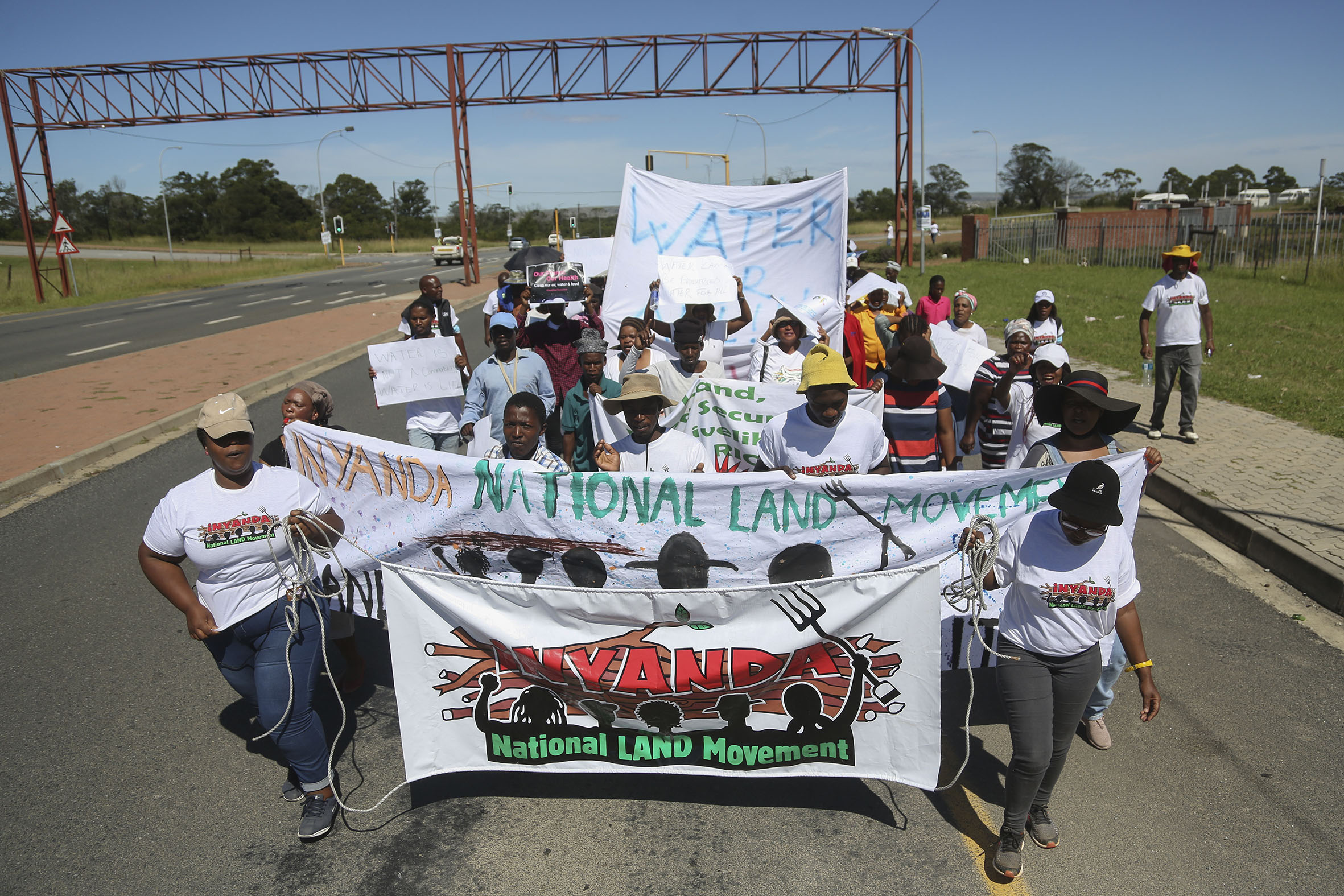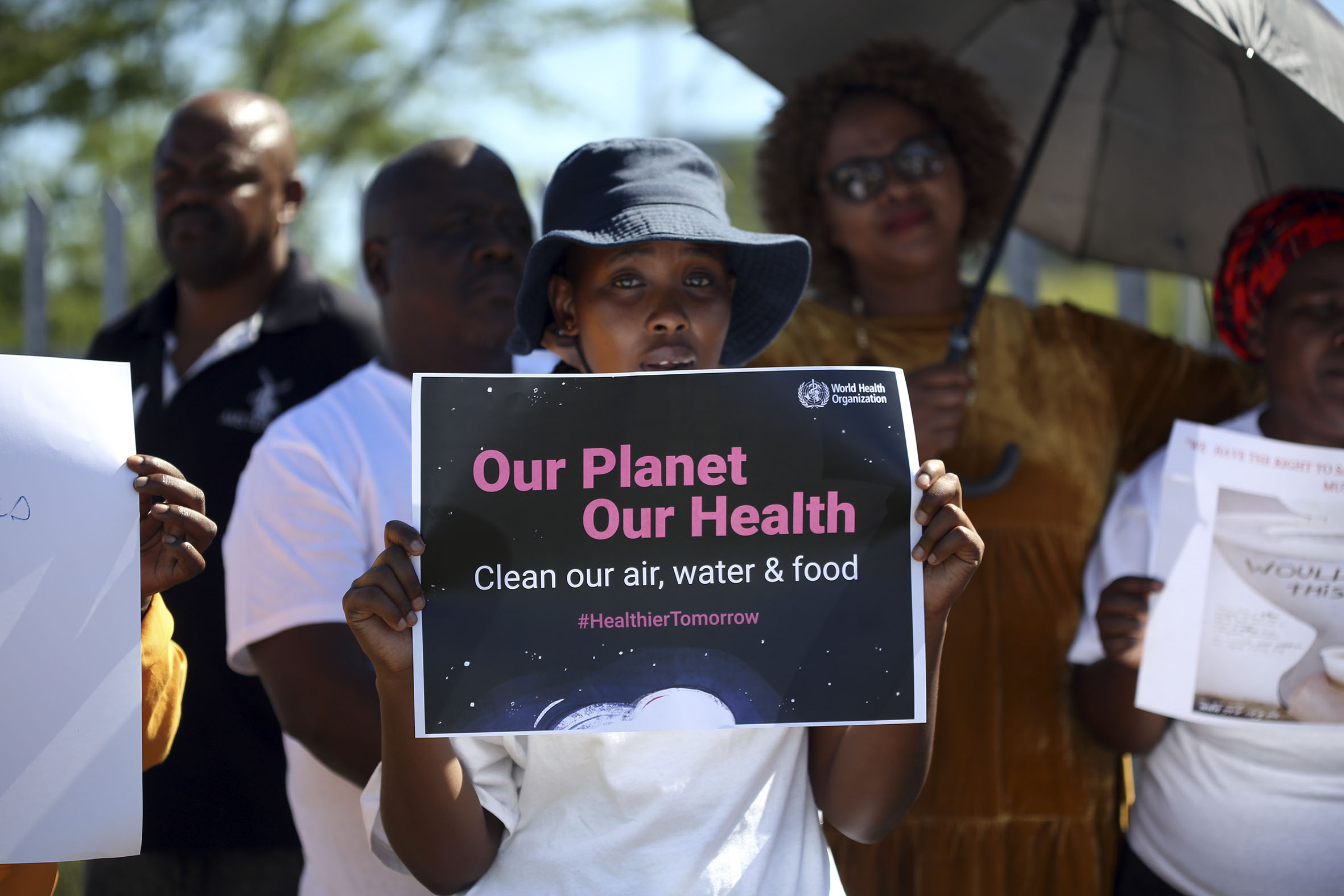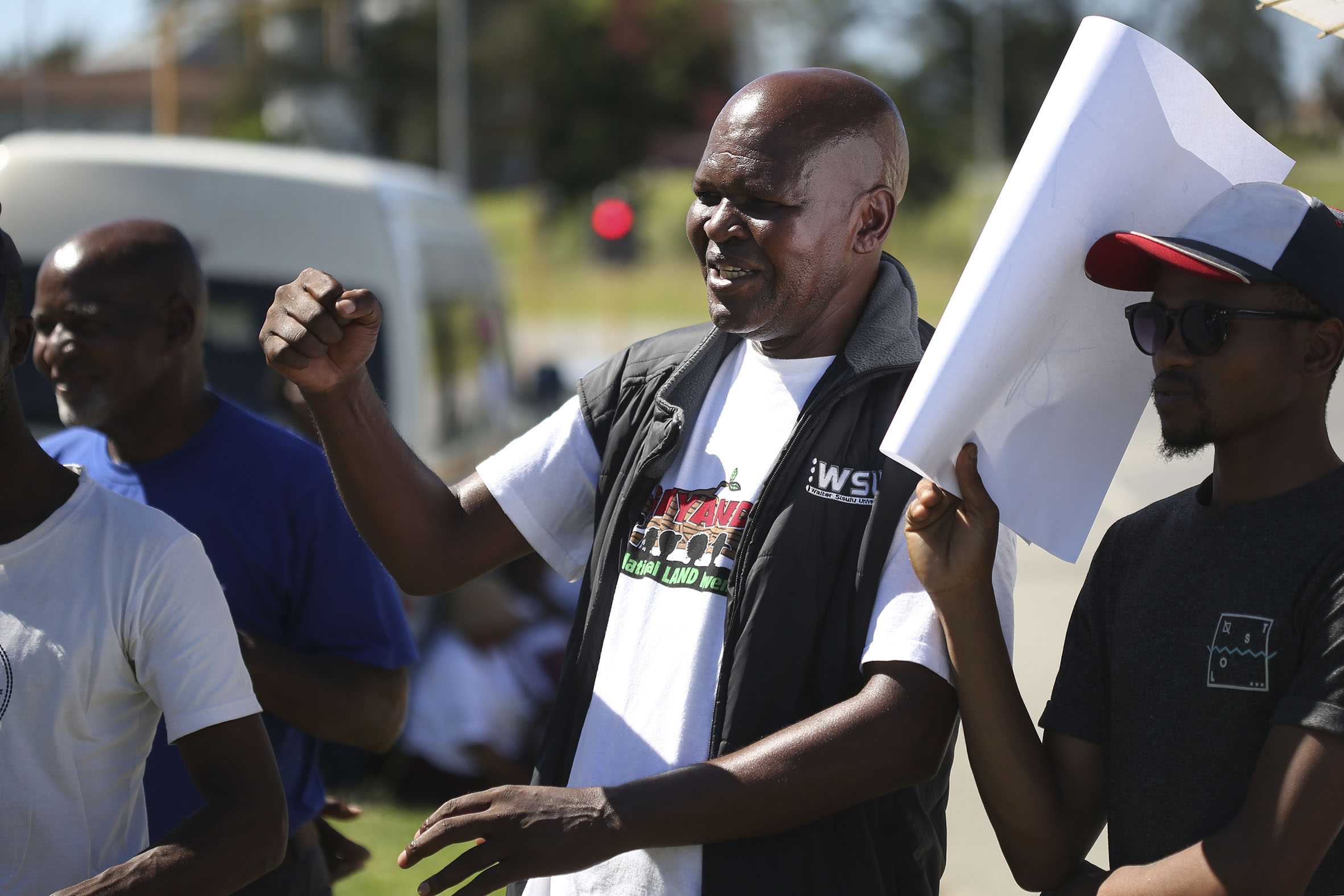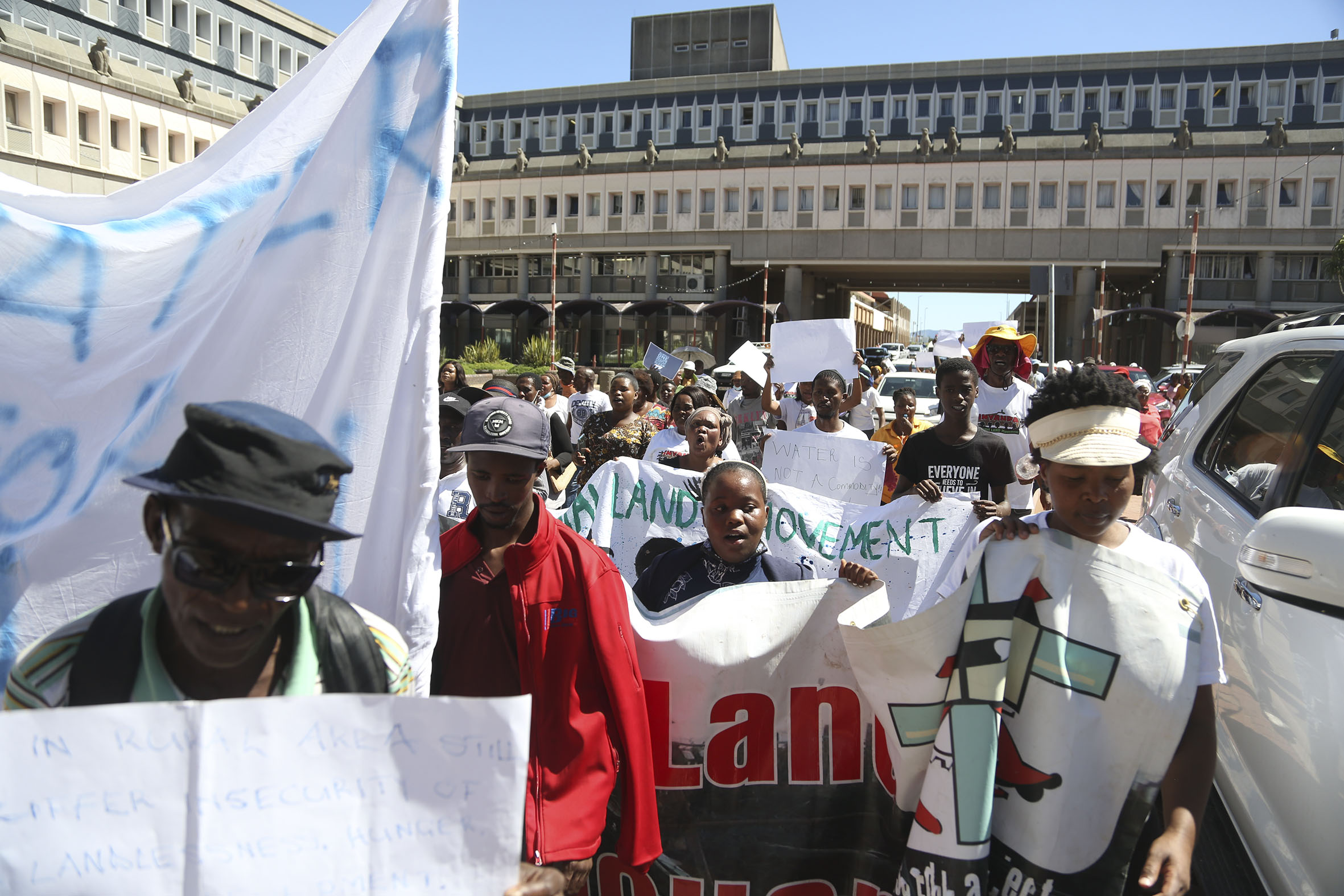Often without water and long without hope
Many Eastern Cape villages populated by impoverished Black people do not have a reliable water supply. Successive ANC governments have done nothing to change this, worsening poverty and illness.
Author:
7 April 2022

In March, about 12 rural and urban organisations drove for hundreds of kilometres from many parts of the Eastern Cape to protest at the Eastern Cape provincial Department of Cooperative Affairs and Traditional Governance in Bisho. They listed about 15 major problems that, for years, have plagued water delivery in the province.
Drought in the Eastern Cape may have eased, but many Black communities in rural areas have no more access to clean drinking water than they did during the dry times two years ago. Communities in Bisho, for example, are still sharing dirty water holes with animals, fetching unsafe drinking water in buckets.
Andile Mapisa, secretary of the Inyanda Land Movement that organised the march, said the government’s austerity measures have left “no hope of resolving this water crisis anytime soon”. Municipal corruption, incompetence, wasteful expenditure and “disturbing racial disparities” in who gets water have made the situation much worse, Mapisa added.

Rural villages, many of which are dozens of kilometres away from the nearest supermarket, rely on small-scale animal and vegetable farming to survive. But Black small-scale farmers are not supplied with irrigation water, and must use expensive drinking water from outside taps or water collected in buckets from rivers to tend to their crops and livestock.
As many Black farmers struggle, some white commercial farmers are “hoarding agricultural water supplies, jeopardising the food production of small scale farmers. As a result, the already fragile food security of rural communities is further destabilised,” said the movement’s national chairperson and small-scale farmer, Moipone Jwayi.
In villages in the Keiskammahoek area, 100km inland from East London, taps have been installed but often run dry. “We have not had water for the past month. Everyone in the village is still fetching dirty water from the river,” said Cyprian Nciza from Ntinga Ntaba kaNdoda, a permaculture project based in Keiskammahoek.
Rural areas ‘disregarded’
The march, which for 2km snaked from the Bisho Massacre Memorial to the department’s offices, saw protesters holding placards bearing messages such as “Blacks in rural areas still suffer insecurity of tenure” and “landlessness, poverty, hunger and unemployment – unless these issues are resolved, rural areas will still be plagued by instability and social unrest”.
In Bathurst, where the bulk of the Eastern Cape’s pineapples are grown on about 25 commercial farms, the water is polluted by pesticide runoff, said Nomawabo Tshisa, a leader in the Rural People’s Movement.
“Your skin dries out and it causes a rash. We cannot drink the water because it has a terrible smell, tastes sour and is undrinkable. It causes diarrhoea. We cannot even use it to water the vegetable gardens,” Tshisa said, adding that sometimes even the contaminated water is not available as residents are routinely told of burst pipes.

Thabisa Mqasho, coordinator at the Rural Women’s Assembly – an organisation currently running a “one woman, one hectare of land with water” campaign – lives in Mkhubiso village, 140km inland from East London. “There is actually a water purification plant, but we can live up to two weeks without water,” she said.
The main problem, she said, is that people from villages are generally “disregarded and not considered important”. The government’s attitude seems to be that rural people can always find their own water supply from rivers or springs and do not need regular, clean running water from taps, added Mqasho.
The government’s failure to extend water infrastructure and the lack of maintenance on existing infrastructure, which has now decayed, has created a huge water backlog. That means that new water projects with which to equip communities to resist climate change are last on the list, said the Inyanda Land Movement.
ANC foot-dragging
Over the years, many Eastern Cape residents have resorted to buying water tanks that they use to collect rainwater through gutters fixed to their houses. But this costs each household about R6 000 – a sum of money out of reach for many villagers.
The Cala University Students Association (Calusa), an advocacy organisation, has been proposing water solutions since 1994 that successive ANC administrations have ignored. The town of Cala is surrounded by mountains with waterfalls, which Calusa proposed should be partially diverted into reservoirs.
“The ANC guys shot that down saying that the democratic government is going to provide water. Yet it has not been provided even now,” said Fani Ncapayi, a leader of Calusa. “Some villages also have springs and all we need is for the government to invest in infrastructure to channel this water to communities. They also need to invest in boreholes to access underground water. I don’t think they have tried enough. They need to focus.”

Organisations affiliated with the Inyanda Land Movement are also part of the Eastern Cape Water Caucus, a grassroots network set up in the 1990s to campaign against water privatisation.
“We came to this march without drinking a drop because there was no water coming out of the taps. It has been a while since water came out of the taps. The Eastern Cape is ugly because it has been devoured when it comes to the water situation. We see no service delivery. Monies that are supposed to be for water are sliding away due to corruption,” said caucus coordinator Xolisa Dwane.
Mamnkeli Ngam, the department’s provincial spokesperson, said it was attending to the memorandum handed over by the Inyanda Land Movement and would not comment to the media on the issues that the protesters raised.
isiXhosa translations by Babalwa Metzlar.
